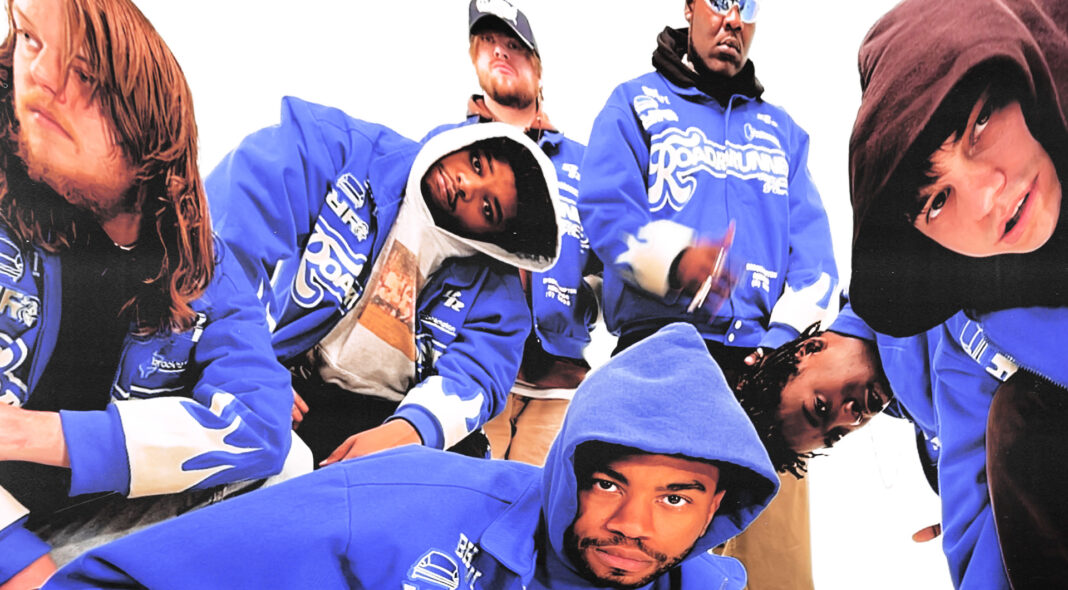When a band announces their hiatus, you expect the fanbase anguish; caps-locked quote tweets and nostalgia clips of past concerts, reposted with emoji tears. What you maybe don’t expect to see is relief. When news of Brockhampton’s “indefinite hiatus” broke, I scrolled through the hashtag timeline, and was surprised to see a similar sentiment repeating; one of acceptance, of finality, of “Thank God, they finally did it”. Fans weren’t necessarily glad to see them done, but they were glad for the closure; a beloved band who have seemed unhappy for some time, putting things to rest.
I saw Brockhampton live once, almost by accident, at Leeds Festival. It was a curiosity watch having heard their name in a few different places, but once I was in that tent, they had me. I was utterly captivated by the scene that unfolded in front of me; kids of all ages and backgrounds going absolutely apeshit to this group of young men who slid seamlessly between stage-shaking raps and crooning ballad sentiments with absolutely equal commitment. On that weekend, they were easily the thing to see; unique, energetic, and boasting the sort of multi-member stan energy that takes you right back to the earliest days of falling in love with pop.
Brockhampton’s franticness is part of what made them great. With a strong social media presence, their work ethic seemed unparalled; on any given week you might get a new song, a documentary, a heartfelt interview or a cryptic tweet promising a new project, all presented with immediately trend-setting graphic design. They worked like a group who were scared to run out of time; between 2017 and 2021, they released six albums, seven documentaries, and made use of 17 members. The ‘Saturation’ Trilogy, in all of its ambition and scale, marked a moment in pop-cultural history where young musicians were aspiring to be more than just performers; they wanted to run houses, like a fashion designer might, embracing collaboration and branding. Brockhampton were meme-worthy and self-deprecating, but also incredibly sincere about their work ethic, clearly wanting to build something bigger than themselves.
In 2018, they hit their first significant hardship. Having announced their fourth studio album, ‘Puppy’, they were forced to delay following allegations of sexual misconduct against Ameer Vann, a founding member who, although admitted to instances of bad behaviour in relationships, denied criminal sexual abuse. Shortly after, he was ousted from the group. Statements were brief, but included the sentiments that the group felt ‘lied to’, apologising for not speaking up sooner. A fanbase divide became palpable; those who felt the group should have stuck by him and those who wondered how implicated the other members might have been in similar behaviours, and those who simply wanted the band to be able to move on.
It’s a hardship from which they arguably never recovered. Given the genuine sense of friendship that had fuelled their early ethos, feelings of loss and betrayal and uncertainty hung heavily over the band’s performances of the period, members sometimes breaking into tears on stage. With a darker tone and lyrical subject matter to the rest of the group, Ameer often stood out for uncomfortable reasons, dipping into more misogynistic tropes and violent imagery that didn’t seem in keeping with the group’s wider ethos. But he also brought a point of musical difference, complimenting the smoother R&B styles of the other members. Without him, some fans felt, the group’s overall quality faltered, their sense of youthful carefree spirit dampened by their connection with controversy.
It’s one thing for a band to go out on top, but in the eyes of critics and fans alike, Brockhampton had already lost their way, cancelling shows and promising new release dates that expired in lengthy passages of silence. Looking back, it is clear that they over-promised; their output was already doing plenty, the clamouring from fans a sign of the content-hungry times rather than a genuine piece of feedback to be taken on. Strangely, a lot of online discourse that has manifested in the past few years about them has presented with vague embarrassment, the idea that liking them was ‘just a phase’.
Nonetheless, it is worth remembering the good times. Pop music probably still hasn’t felt anything quite like ‘Boogie’ before or since, a rambunctious hook of young dumb thrills. Through the visibility and lyricism of bandleader Kevin Abstract especially, huge conversations have been had in rap about LGBT representation and gay acceptance in youth black culture, undoubtedly instrumental in the empowered self-acceptance of a great many fans and artists who follow in their wake. Their earnest reimagining of the ‘boyband’ trope encouraged a lack of gatekeeping hierarchy that was healthy for hip-hop and pop alike, testing boundaries of what we come to expect from the way music is marketed. Forged from strangers on an internet forum, Brockhampton remain one of the more ambitious groups we’ve seen this millennium, a style that will surely set blueprint for many up-and-coming acts.
At time of writing, it is not exactly clear why now is the right time for them to leave, to cancel their tour and set their sights only on Brixton and Coachella as a means of farewell. As listeners, we have to trust that they have their reasons; you hope that it is merely the recognition of having had enough and not wanting to complicate things in a pandemic, rather than anything more sinister or regretful that is yet to come out. Until then, it’s a bittersweet goodbye; we may have experienced a great loss, but at least the fandom is no longer in pain.
Subtweets is a weekly column, unpacking the topics blowing up music Twitter. Join the conversation.







